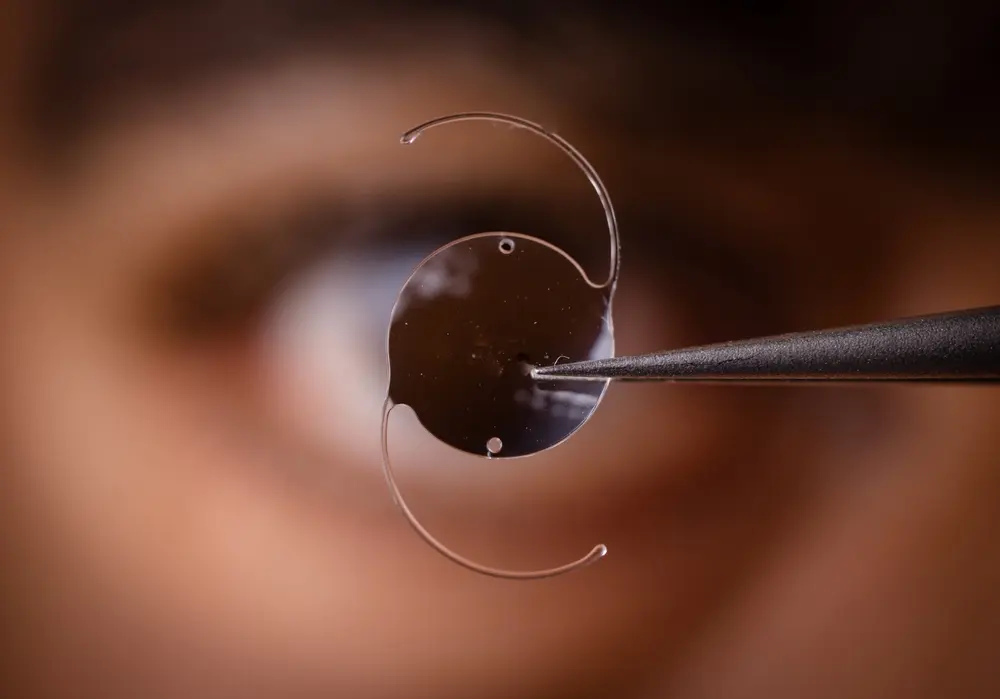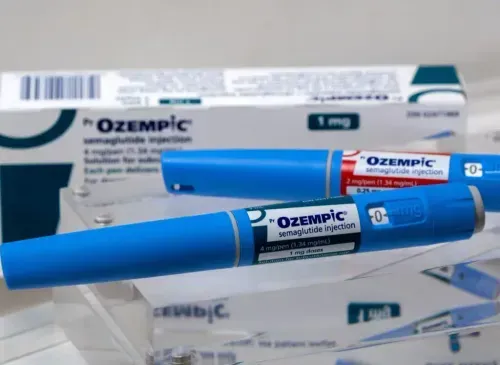Allomax Lawsuits for Breast Implant Reconstruction Surgery Failures, Breast Implant Explantation, Necrosis, Seroma, and Other Major Complications
WASHINGTON, DC – The U.S. Food and Drug Administration (FDA) announced an important FDA Safety Communication warning that Allomax Acellular Dermal Matrix (ADM( products used in about 80% of implant-based breast reconstruction appear to have a greater chance of serious post-operative complications.
The FDA issued a warning to surgeons, health care providers, and patients of its recent analysis concerning Allomax Acellular Dermal Matrix and is asking for immediate reporting of any problems, complications, or any other adverse events to help better identify the risks associated with Acellular Dermal Matrix products.
Women who are about to have reconstructive breast surgery after a mastectomy are given several surgical options. In breast reconstruction or augmentation procedures that involve implants, the surgeon may choose to use only breast implants or use breast implants with ADM.
In about 80% of breast reconstructive or augmentation surgery, ADM is used. However, the use of ADM mesh used in breast reconstruction surgery is off-label, and Allomax has not yet been cleared or approved by the FDA for breast augmentation or breast reconstructive surgery.
Which Brands of Acellular Dermal Matrix Mesh (ADM) Are Being Reviewed for Possible Compensation?
Did you or your loved one experience harm due to Allomax? Parker Waichman LLP helps victims and families receive justice and full monetary compensation for harm caused by defective Acellular Dermal Matrix (ADM) products. For a free consultation, contact our law firm today by using our live chat or calling 800-968-7529.
Did You or a Family Member Suffer One or More of The Following Complications Caused by Allomax (Becton Dickinson/Bard)?
- Infection,
- Seroma,
- Mastectomy flap/skin necrosis,
- Cellulitis,
- Implant explantation (implant or additional breast tissue removal), and/or
- Reconstructive failure.
The FDA Issued the Following Recommendations and Guidance for Breast Reconstruction Patients and CaregiversPatients who are about to undergo breast reconstruction surgery should discuss the risks, benefits, and possible complications connected with implant-based breast reconstruction using ADM. If the plastic surgeon is suggesting that ADM be used as an off-label alternative, which is not cleared or approved by the U.S. FDA, be sure to ask your physician about which type of ADM will be used during the surgical procedure.
ADM is used in several types of reconstructive surgical procedures. However, the FDA clarified that off-label use of ADM products for use in breast reconstruction or augmentation procedures has not been it has never approved or cleared by their agency.
If you or a family member had breast reconstruction or augmentation surgery with Allomax ADM and are experiencing complications, reconstructive breast failure, side effects, Seroma, cellulitis, infections, necrosis, discomfort, or any other problem, the FDA is urging you to report these issues and medical conditions to MedWatch, the FDA’s Safety Information and Adverse Event Reporting program.
Health care professionals should be conscious that the FDA has not approved or cleared the use of ADM products in implant-based reconstruction or augmentation surgery. Moreover, recent data reviewed by the FDA and published literature states that Allomax ADM has been connected to higher risk profiles than other ADM products.
The FDA is not currently advising the extraction of implanted ADM or reoperation as a preventive measure at this time.
Allomax Acellular Dermal Matrix (ADM) Product Description
Allomax is an Acellular Dermal Matrix (ADM) surgical mesh that is manufactured from human skin (FlexHD, AlloMax, AlloDerm) or animal skin (SurgiMend). The product is produced by removing cells and leaving the supportive structure in place. While certain ADMs are cleared and approved by the FDA for some surgical procedures, such as in hernia surgery, there is little known about ADM’s possible complications.
The FDA states that ADM products vary significantly in their original material, processing, biomechanical properties, level of sterility, thickness, final product state, and preparation methods before surgical application.
What Is Allomax ADM?
AlloMax is a human-derived biologic mesh manufactured by C.R. Bard, Inc. (now owned by Becton Dickinson & Co.). It is created from donated human skin that is chemically processed to remove all living cells, leaving behind a collagen “scaffold.” Surgeons use this matrix to reinforce tissue during reconstructive procedures, particularly following mastectomy.
Although the FDA has cleared AlloMax for certain hernia repairs and soft-tissue reinforcement, its use in breast reconstruction is strictly off-label. The agency now warns that AlloMax demonstrates a higher risk profile than other ADM products such as AlloDerm or SurgiMend.
ADM Risk Profile in Implant-based Breast Augmentation and Reconstruction Procedures
Over the past several years, ADM has been used as off-label in implant-based breast reconstruction treatment. The use of ADM in breast augmentation or reconstructive surgeries has become very common and is used in about 80% of procedures. Many doctors use Allomax mesh in the chest area for augmentation or reconstructive surgery “off-label” since ADM products have been approved in other surgical procedures. However, the FDA made it clear that the agency has not approved or cleared any ADM products for breast reconstruction or breast augmentation procedures.
The FDA has finished its overall review of patient-level data collected from ADM usage in implant-based breast reconstruction. The data affirmed that two ADMs, FlexHD, and Allomax, produce a higher risk profile than the other ADM products.
A Mastectomy Reconstruction Outcomes Consortium (MROC) study accumulated data from eleven medical centers, including nine academic hospitals that performed a high volume of breast augmentation and reconstruction surgeries in Canada and the United States. The study’s goal was to evaluate the outcomes in patients who underwent implant-based breast reconstruction surgery following a mastectomy. The study collected data on reported major post-surgical complications, including reoperation, explanation (implant removal), and infections. The FDA conducted an analysis based on the data compiled, and it compared the complication rates between patients who never received ADM (the control group), and groups that receiving one of the ADM brands: AlloDerm, FlexHD, AlloMax, SurgiMend.
The FDA’s review of the MROC study’s data showed considerably higher “major complication” and rates of explanation, infections, and reoperation in the groups of patients who received either FlexHD and AlloMax brands of ADM within two years of the surgery when compared to groups of patients who received AlloDerm or SurgiMend ADM brands, or the control group that did not receive ADM products. The increase in serious complications connected with AlloMax or FlexHD was seen across multiple sites.
The underlying cause of the varying complication rates between the various ADM brands of ADM is unknown. However, health care providers and patients need to be made aware of the FDA’s findings and should report adverse events to the FDA to help the agency better understand the risks associated with Allomax and FlexHD.
FDA Safety Warning On Allomax ADM Products
In a safety communication, the U.S. Food and Drug Administration (FDA) alerted surgeons, hospitals, and patients that AlloMax Acellular Dermal Matrix (ADM)—a biologic mesh used in breast reconstruction surgeries after mastectomy—has been linked to significantly higher rates of major post-operative complications.
According to the FDA, AlloMax and a similar ADM known as FlexHD were associated with:
- Increased infection rates
- Higher rates of reoperation and explantation (implant removal)
- Greater likelihood of reconstructive failure
The FDA emphasized that no ADM product—including AlloMax—has been cleared or approved for use in breast reconstruction or augmentation.
Despite this, ADM products are used in roughly 80% of implant-based breast reconstructions performed in the U.S. today.
FDA Findings: Higher Rates Of Complications
The FDA based its safety communication on the Mastectomy Reconstruction Outcomes Consortium (MROC) study, which analyzed data from eleven leading North American medical centers.
This study compared breast reconstruction outcomes using different ADMs and found that:
- Patients receiving AlloMax or FlexHD experienced significantly more infections, reoperations, and implant removals within two years.
- The rate of serious complications was nearly double that of AlloDerm and SurgiMend users.
- The precise reason for these elevated risks is unknown but may involve differences in ADM processing, sterilization, and tissue integration.
The FDA concluded that patients and doctors must be informed of the higher risk profiles associated with certain ADM brands and should carefully weigh the benefits and potential harms.
Common Injuries And Side Effects Linked To Allomax
Individuals who underwent breast reconstruction with AlloMax ADM have reported:
- Severe infections or cellulitis
- Seroma (fluid buildup under the skin)
- Mastectomy flap or skin necrosis (tissue death)
- Chronic inflammation and pain
- Capsular contracture (hardening and distortion of the implant)
- Implant exposure or reconstructive failure
- Need for revision or explant surgery
While no direct cancer link has been identified, persistent inflammation and multiple reoperations can lead to scarring, disfigurement, and long-term psychological trauma.
Off-Label Use And Manufacturer Liability
The FDA has clarified that AlloMax ADM has not been approved for breast reconstruction or augmentation procedures.
Despite this, the product was widely marketed to plastic surgeons as a “biologic support mesh” for such use—prompting allegations of:
- Defective design and manufacturing
- Failure to warn about higher complication rates
- Negligent misrepresentation and off-label promotion
Parker Waichman LLP is investigating claims against Becton Dickinson and C.R. Bard for patients who suffered serious medical complications following implantation of AlloMax ADM.
Key Scientific and Regulatory Evidence on Allomax ADM Safety
In a 2025 study published in Plastic & Reconstructive Surgery – Global Open, Sbitany et al. provided laboratory data showing that AlloMax triggered elevated levels of inflammatory cytokines (IL-1β, IL-6, and IL-8) compared with AlloDerm, indicating a stronger immune response and potentially greater post-surgical inflammation. These findings lend biological support to the FDA’s clinical observations of increased complication rates.
A separate 2024 systematic review published in BMC Cancer analyzed data from multiple implant-based breast reconstruction trials and confirmed that ADM-assisted procedures overall, especially those involving certain biologic meshes, were associated with higher odds of infection, reoperation, and reconstructive failure compared with implant-only surgeries.
Finally, the Mastectomy Reconstruction Outcomes Consortium (MROC) study, analyzed by the FDA, demonstrated a statistically significant rise in explantation and major postoperative complications in patients who received AlloMax ADM. Collectively, these findings underscore the growing consensus among researchers and regulators that AlloMax poses an elevated risk profile in comparison to other acellular dermal matrix products.
Patient Warning Signs
If you’ve undergone breast reconstruction or augmentation and notice any of the following, you may have a claim:
- Redness, heat, or swelling near the incision site
- Persistent drainage or seroma formation
- Sharp or chronic pain around the implant
- Skin or tissue breakdown (necrosis)
- Breast hardening, asymmetry, or distortion
- Fevers, fatigue, or signs of systemic infection
- Revision surgery or implant removal due to failure
Report these events to your physician immediately and file an adverse event report with FDA MedWatch. Then contact Parker Waichman LLP for a free case review.
Potential Compensation For AlloMax ADM Injuries
Victims of defective AlloMax ADM implants may be entitled to compensation for:
- Medical and surgical expenses (including revision and explant surgery)
- Hospitalization and antibiotic treatment
- Pain, suffering, and emotional distress
- Permanent scarring or disfigurement
- Lost income or diminished earning capacity
- Wrongful death damages (for fatal post-operative infections)
Our product-liability attorneys handle AlloMax injury cases nationwide, and there are no fees unless we recover compensation for you.
AlloMax ADM Lawsuit Frequently Asked Questions
Is AlloMax ADM approved for breast reconstruction?
No. The FDA has not cleared or approved AlloMax ADM for use in breast reconstruction or augmentation. Its use in such procedures is off-label, meaning it was never formally reviewed for safety or efficacy in this application.
What complications are linked to AlloMax ADM?
Reported complications include infection, seroma, necrosis, capsular contracture, tissue failure, and the need for implant removal or revision surgery. These injuries can lead to chronic pain, scarring, or total reconstruction loss.
Has AlloMax ADM been linked to cancer?
As of 2025, no peer-reviewed studies or FDA reports have linked AlloMax ADM to cancer or BIA-ALCL. The primary risks are surgical complications, not malignancy.
What did the FDA find about AlloMax?
The FDA’s analysis of national MROC data found that AlloMax and FlexHD were associated with significantly higher complication rates—specifically infection, reoperation, and explantation—compared to AlloDerm, SurgiMend, or no ADM.
Why is AlloMax use considered “off-label”?
“Off-label” means that a medical device is used for a purpose not approved by the FDA. AlloMax was never approved for breast reconstruction; it was designed for limited soft-tissue reinforcement. Manufacturers may not legally market products for unapproved indications.
How do I know if AlloMax was used in my surgery?
Your operative report or implant record from your hospital will specify the ADM brand. If you are unsure, our legal team can help obtain these records and confirm whether AlloMax was used.
Can I still file a claim if my surgery was years ago?
Yes. Many states’ statutes of limitations begin when the patient discovers the injury—not on the date of implantation. If complications emerged later, you may still qualify for compensation.
What damages can I recover in an AlloMax lawsuit?
You may be eligible for compensation for medical costs, pain and suffering, lost wages, scarring or deformity, emotional distress, and other losses tied to the defective product.
Who is responsible for AlloMax ADM?
AlloMax was manufactured by C.R. Bard, Inc., which has since merged into Becton Dickinson & Co. (BD). These companies may be held liable for marketing a defective and unapproved product for breast reconstruction.
How can Parker Waichman LLP help?
Our firm is one of the nation’s leading defective medical device litigation teams. We represent women and families nationwide who suffered harm from AlloMax ADM. We will investigate your surgical history, consult with medical experts, and pursue maximum compensation.
If you or a loved one experienced complications after breast reconstruction involving AlloMax ADM, you may be entitled to significant financial recovery.
Contact Parker Waichman LLP today at 1-800-968-7529 or use our online chat to schedule a free, confidential consultation.
Our attorneys are actively reviewing national claims involving:
- AlloMax ADM
- FlexHD ADM
- And other unapproved biologic meshes used in implant-based breast reconstruction
There are no fees or costs unless we win your case.
Contact Parker Waichman LLP for a Free Case Review
Did you or a loved one suffer harm due to Allomax? Parker Waichman LLP helps victims and families receive justice and full monetary compensation for harm caused by Allomax. Trust your case with our defective product injury attorneys. For a free consultation, contact our law firm today by using our live chat or calling 800-968-7529.












































